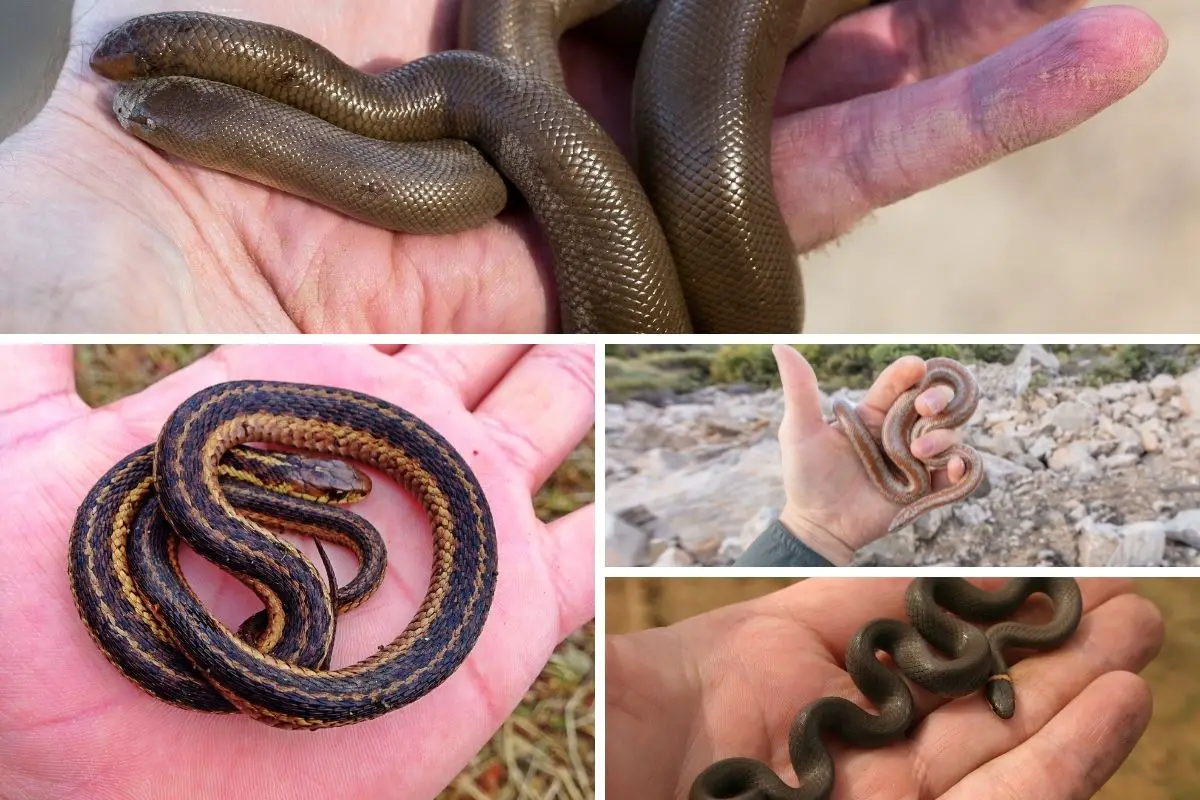Snakes have often been misunderstood creatures that people fear. Snakes can be great pets if you know what to look for!
Snakes that don’t bite and stay small are the best beginners snakes because there is less risk involved with them and they are quite low-maintenance, especially when compared with other animals that like dogs or cats.
So, here are the 10 pet snakes that don’t bite and stay small :
- Ball Python
- Rosy Boa
- Ringneck Snake
- Sunbeam Snake
- Garter Snakes
- Kenyan Sand Boa
- Rubber Boa
- Corn Snake
- Western Hognose snake
- California King Snake
In this article, we are going to discuss why these snakes are the best snakes for any beginner wants a low-maintenance snake that poses the least risk on them, so stick around.
Contents
The 10 pet snakes that don’t bite and stay small
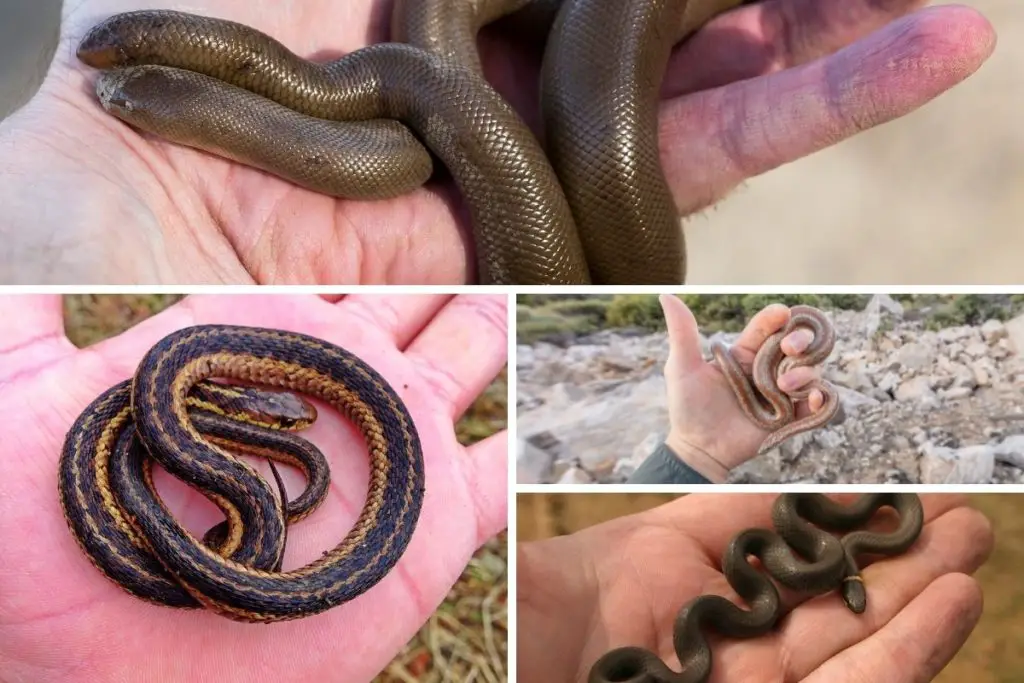
Small snakes are awesome. They require little maintenance, need little space and their enclosures are not going to be expensive.
But there are two drawbacks you need to be aware of; since they are very small, they are often able to escape from the tiniest gaps, and if they do escape, it’s next to impossible to find them in the house.
Now, let’s get to know these small snakes that don’t bite:
Ball Python
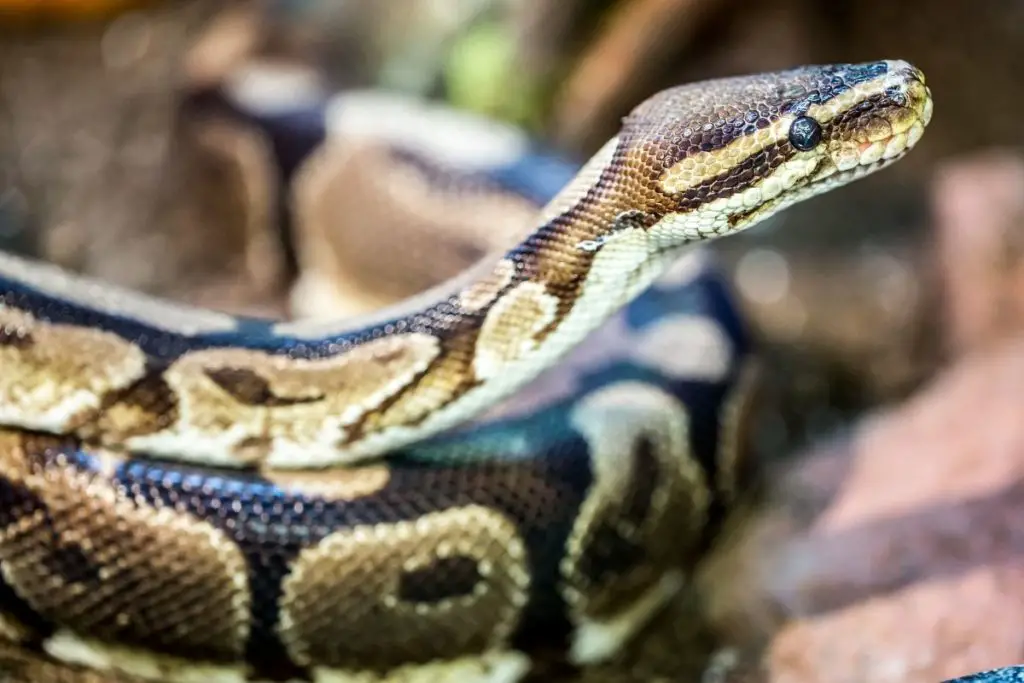
Lifespan: 15-30 years
Size: 6 feet.
Price: $70
Ball Pythons are ideal snake pets for people looking for a laid-back and happy species. Slow metabolism rate contributes to their longevity as well. They’re wonderful for youngsters because they don’t require much physical effort or interaction.
Because they are passive, they are also excellent house snakes.
This is a docile snake that doesn’t mind being handled and showing affection. With the correct owner, who has built a trust foundation with the reptile, this species is quite gentle.
Because it has utilized a substitute defensive mechanism, your ball python is less likely to bite you. It curls up into a tiny ball as much as possible when frightened, hence the name “ball python.”
It’ll wrap itself up in coils and tuck the head and neck in to keep the hazard away from its most critical regions.
Every snake except rattlesnakes makes use of this defensive strategy. Most snakes coil up into an S-shape and show their teeth, ready to bite if threatened.
By the way, if you are interested in getting a ball python, you should take some time to choose the right morph. You can start by learning about the very unique and amazing fire ball python morph here.
Rosy Boa
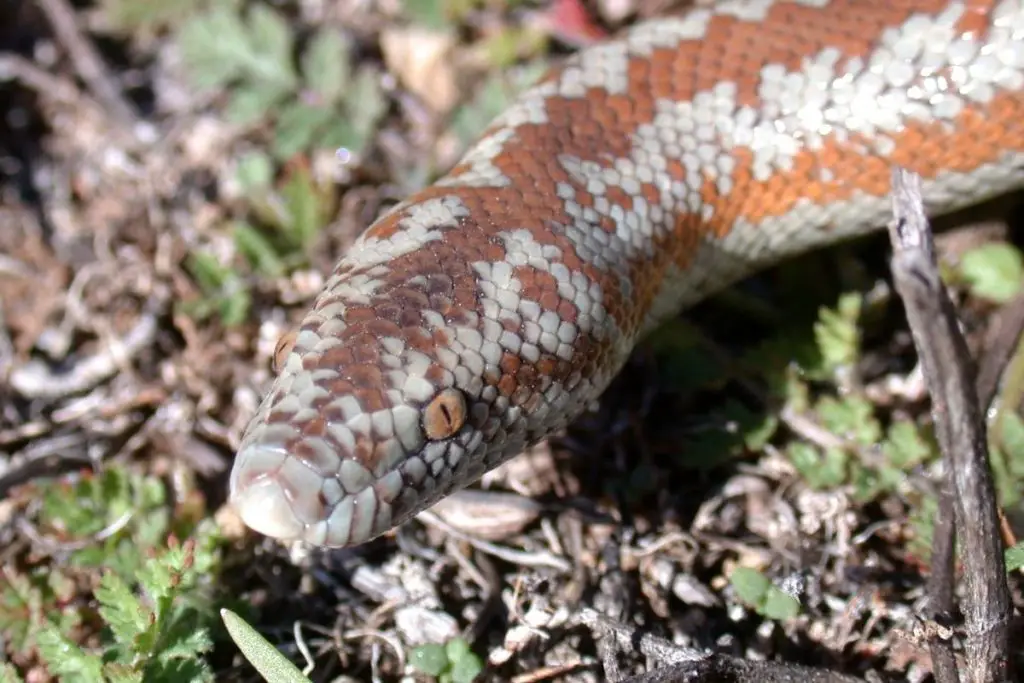
Lifespan: Up to 30 years
Size: Up to 3.6 feet long
Price $20
Rosy boas are docile, easy to maintain and have a lifespan of up to 30 years.
Despite their small size, female rosy boas can grow quite large – about three feet in length. Males tend to be smaller but they don’t live as long (only 15-20 years).
Although adults aren’t very huge, they are still a great choice for anyone with children.
Since this is one of the most abundant snakes in North America it’s also quite easy to find its prey items.
When food isn’t available or when you want your pet to lose some weight, pinkie mice make an excellent meal alternative since their size is small and can be swallowed whole.
However, make sure to never feed them live prey. You can learn why you should never feed your pet snake live mice here.
Ringneck Snake
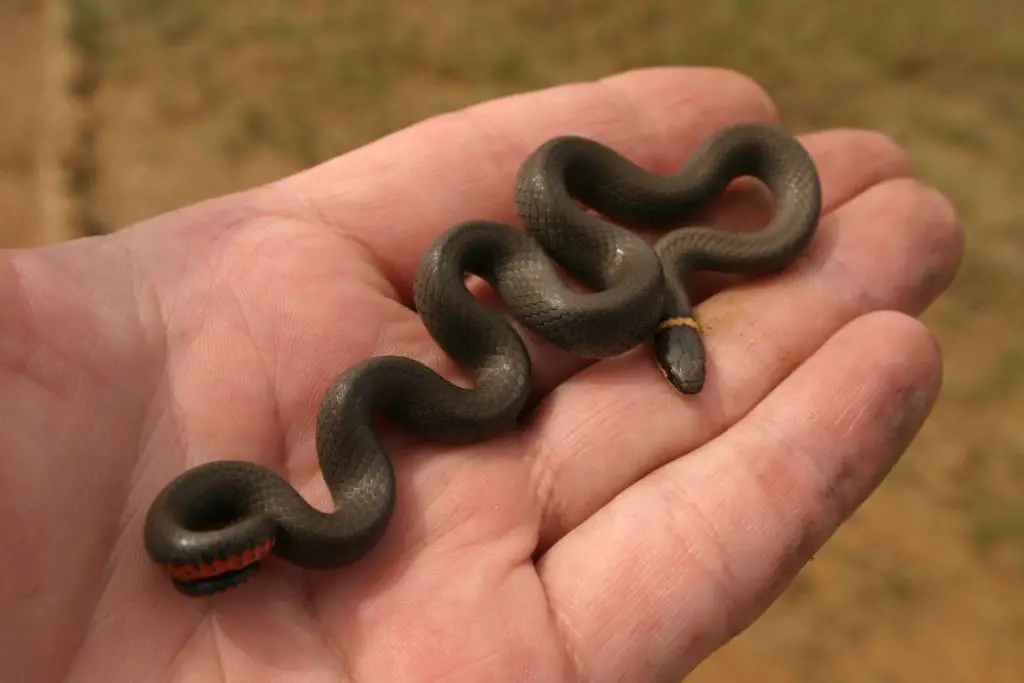
Lifespan: up to 6 years
Size: 10 to 15 inches
Price: $30
Because this species is very small it’s important to know that you can house them together or separately from other types of pets because there won’t be any fighting among the reptiles.
However, these snakes have certain habits that may become troubling to the owner if they are not recognized ahead of time. When it comes to escaping their enclosures, ringnecks can be really mischievous.
Because of their length, around 15 inches, many people mistake tiny snakes for baby snakes. They have a diameter no larger than that of a pencil and can consume minute worms and invertebrates.
Sunbeam Snake
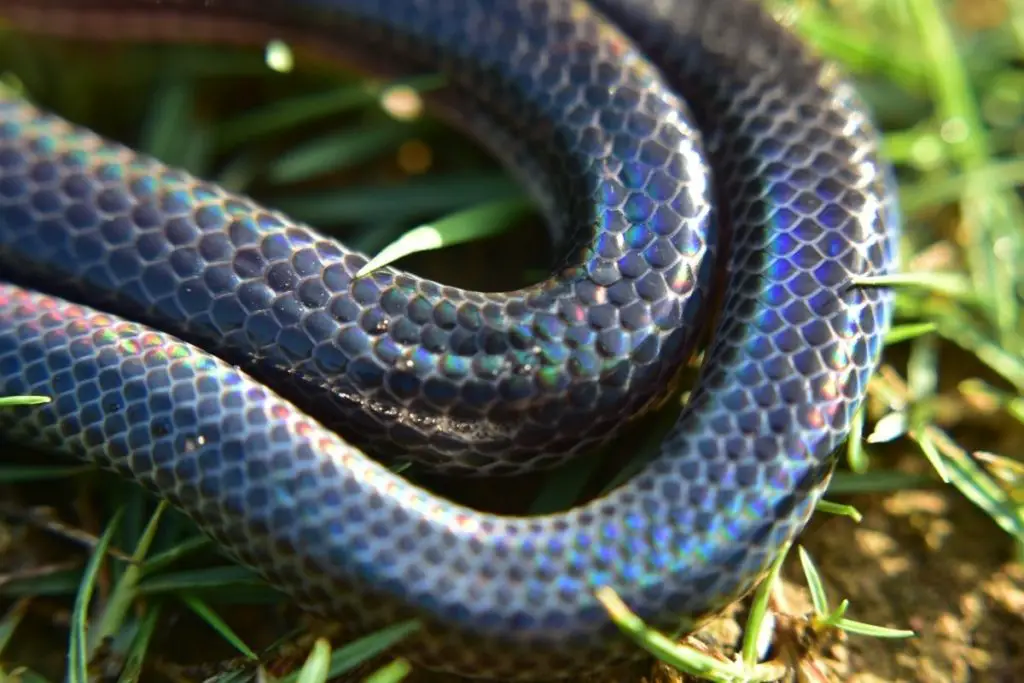
Lifespan: 10 to 15 years
Size: up to 3 feet
Price: $70 to $100
Sunbeams are without a doubt the most spectacular snake in the world! Their stunning rainbow-reflecting skin that draws attention to them is something you must see. They’re also quite approachable because of their tiny size, owing to which
Burrows are where sunbeams like to hide. They’re wary and love digging, so they’re seldom seen. Sunbeams, on the other hand, are sociable and usually warm up to people after being handled once they’ve been captured.
They’re also non-venomous and non-threatening, so there’s nothing to be concerned about if you handle them correctly.
Garter Snakes
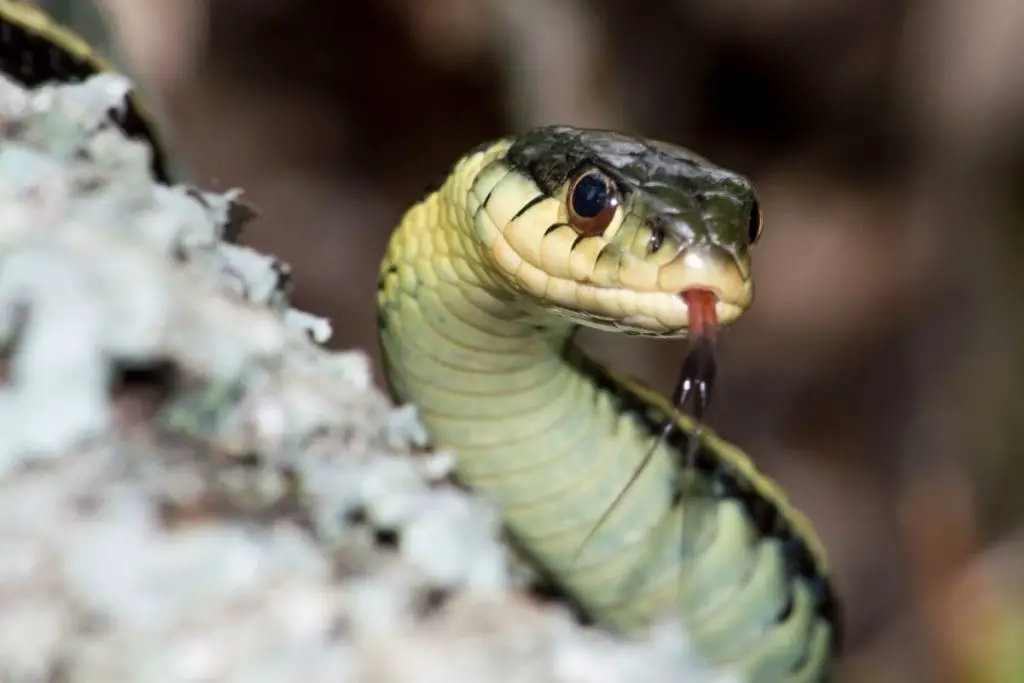
Lifespan: Up to 10 years
Size: Up to 3 feet long
Price $15-$30
Garter snakes, which are popular pet reptiles that do not grow much, are the next on our list.
Garter snakes come in a range of hues and patterns, but they’re all nonvenomous, so you don’t have to be concerned about them harming your family or pet cats/dogs while you are away.
Garter snakes are also one of the most common types of snakes kept as pets. They require a 20-gallon aquarium and only need to be fed once or twice a week.
Garter snakes are friendly snakes and will warm up to you quite easily if you take good care of them, so you don’t need to worry about them biting you as much as you do with other snakes. Still, garter snakes do bite sometimes, it’s rare but it does happen, but since their teeth are very weak, they are not even going to pierce your skin or cause any serious damage and the most you are going to feel is probably going to be some swelling, redness, itching, and probably mild pain.
Kenyan Sand Boa
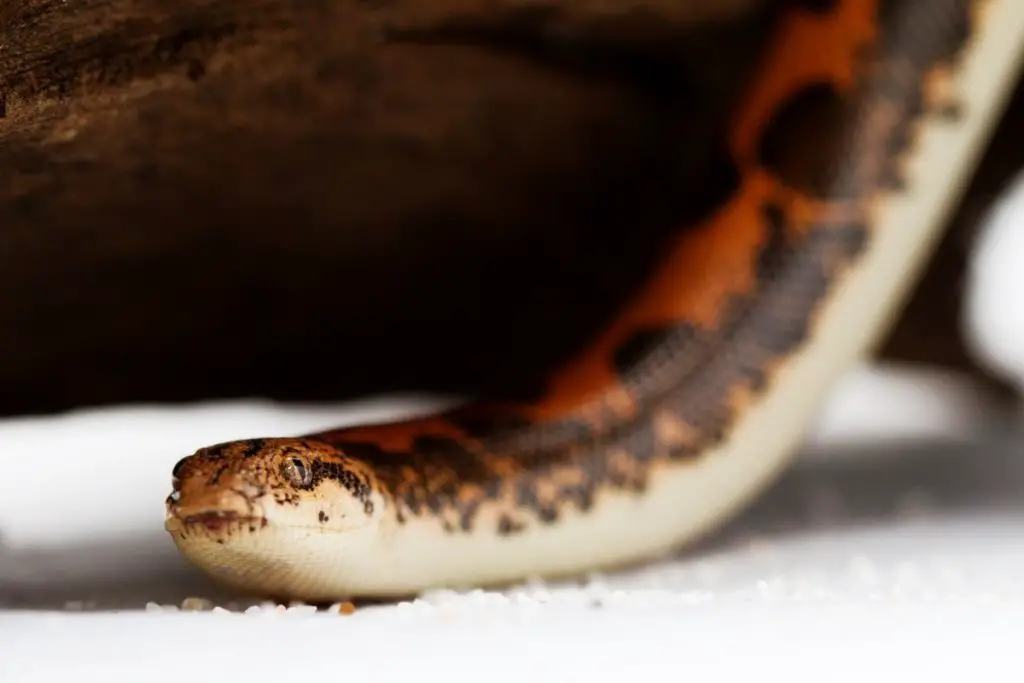
Lifespan: 15 years
Size: up to 2 feet long.
Price: $120
The Kenyan sand boa is a tough snake that doesn’t require much care. They eat little meals and don’t need any special bedding, either.
Adult and kids alike can handle these snake pets as long as they are trained in the first few weeks of contact to ensure that the pet snake is acclimated to its surroundings.
You can learn how to handle your pet snake in this guide on whether pet snakes like to be held, petted, or touched here.
The Kenyan sand boa is also tiny, and it may be kept in a tank as little as 10 gallons.
They are somewhat unassuming, but some of them have a flighty demeanor.
Rubber Boa
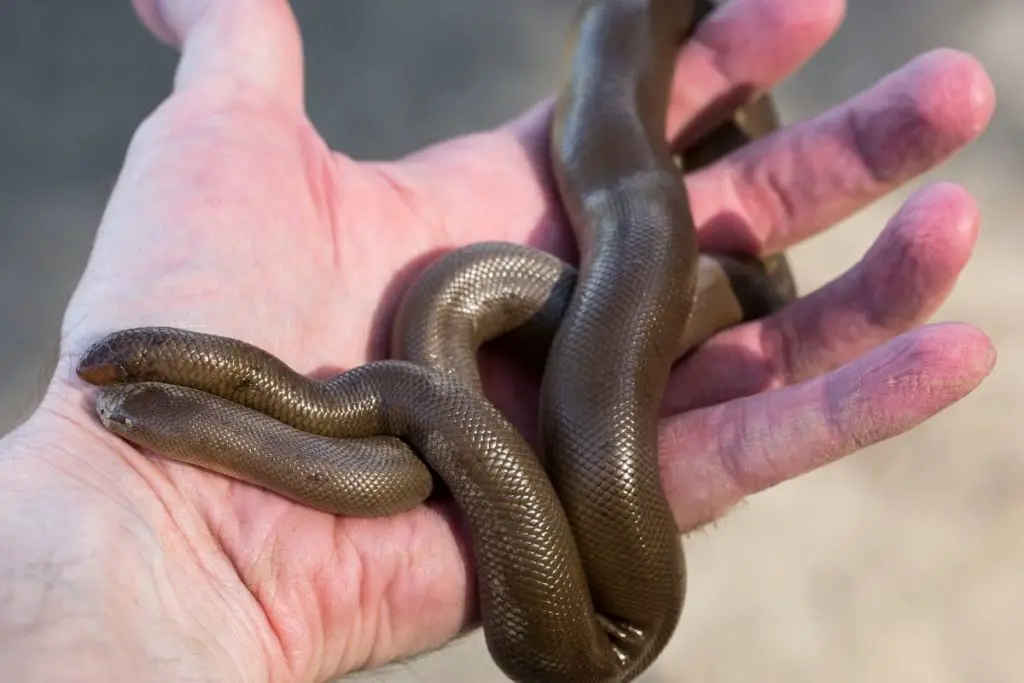
Lifespan: 40 to 50 years in the wild
Size: 21 to 26 inches
Price: $150
Snakeophobics always interact with a Rubber Boa in therapy sessions since it is the most effective approach to treat their fear of snakes. This sheds light on this snake’s demeanor.
Rubber boas are such gentle, pleasant, and interested creatures that they will frequently come closer to humans or even predators in the wild.
Unfortunately, while this is a very cute behavior, it means that these snakes are frequently killed by predators and humans who mistake them for poisonous snakes due to their angelic appearance.
Pine snakes are nonvenomous and rarely if ever utilize their fangs, so you don’t have to worry about them biting you.
Corn Snake
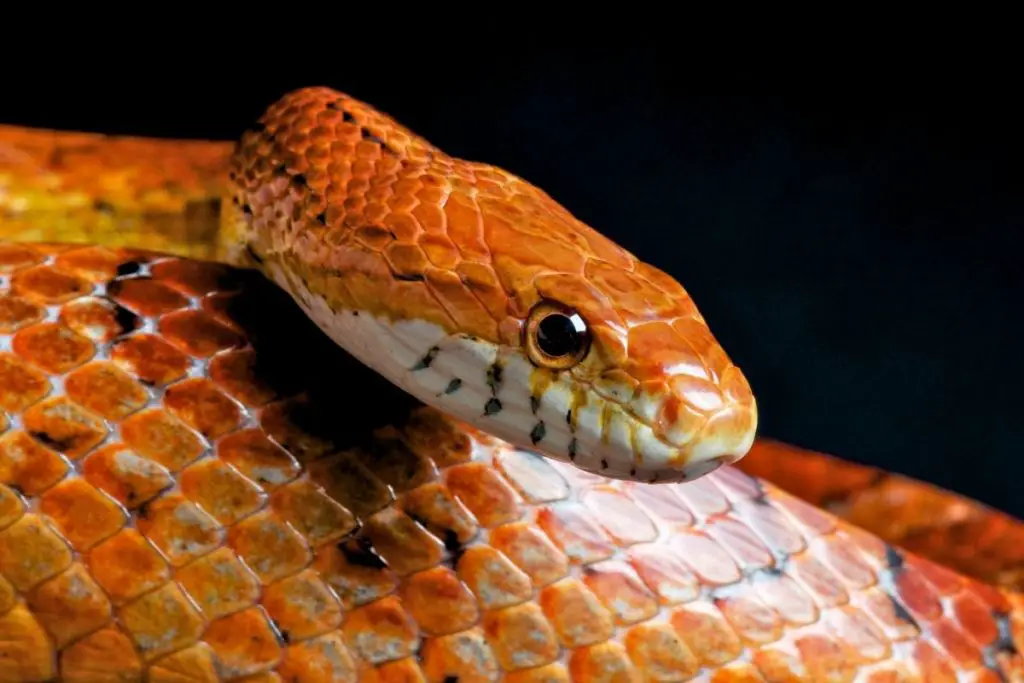
Lifespan: up to 8 years
Size: Up to five feet
Price: $80
Corn snakes are one of the most popular snakes kept as pets, because they are small and docile.
They’re also nonvenomous, so there’s no need to worry about them ever biting you or your family members.
Corn Snakes can be gentle with their caretakers once properly tamed. If frightened by loud noises, they will coil up in a ball, but they will usually uncoil and resume activity once the disturbance has ceased.
Corn Snakes are constrictors and eat mice, rats, or birds. They can be kept in a 20-gallon tank and should be fed every week to month.
Western Hognose snake
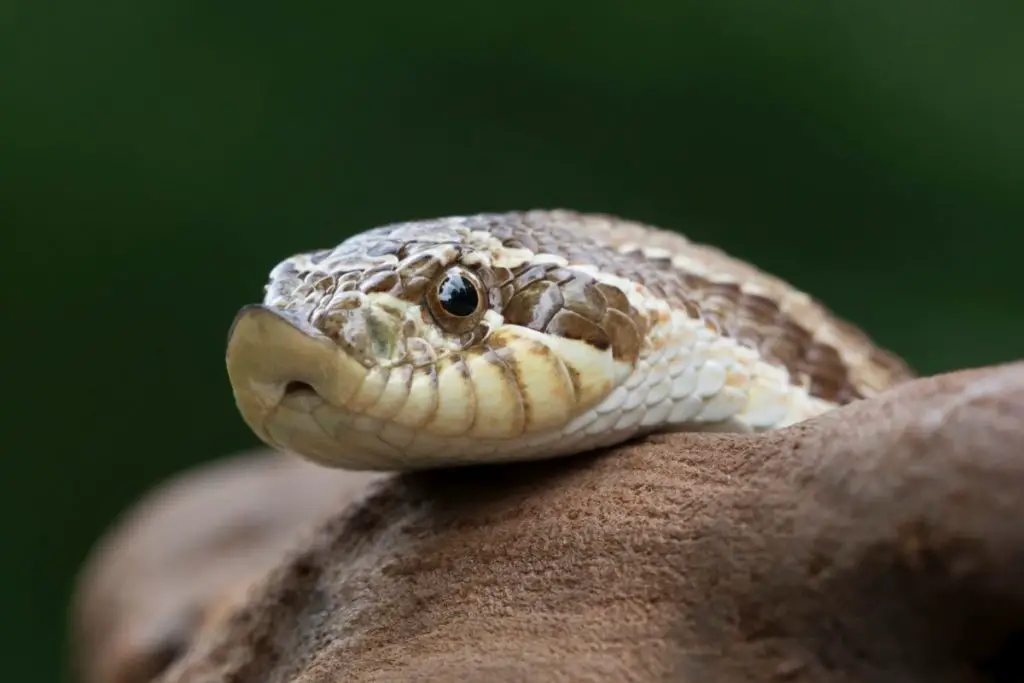
Lifespan: up to 20 years
Size: up to 3.6 feet.
Price: $250
The Western Hognose snake is a nonvenomous and docile snake that can be found in North America.
These snakes are known for their bluffing behavior- if disturbed, they will act as if they are about to strike but will instead roll onto their back and play dead. While this may seem strange to us, it’s actually an effective defense mechanism for these snakes in the wild.
They are calm and docile pets when handled, but they can be skittish around other animals or people if not properly tamed.
It is essential that they be kept at room temperature and fed every two to three weeks. Snacks like mice or baby chicks can be offered to them, but they should, of course, be frozen and not alive.
California King Snake
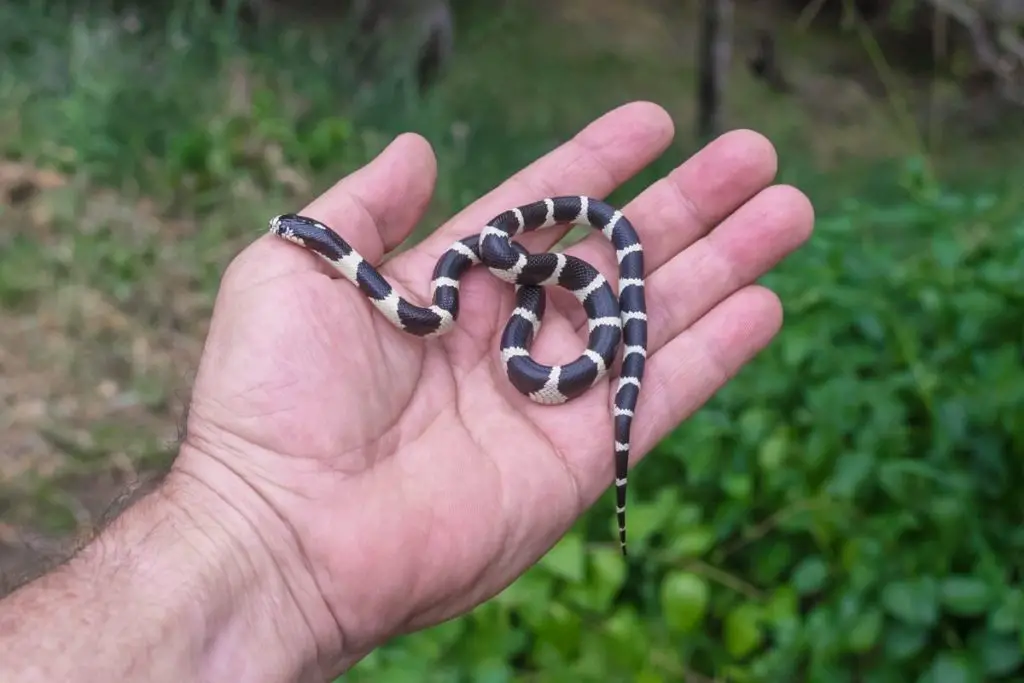
Lifespan: 20 years
Size: up to 40 inches
Price: varies
The common kingsnake, also known as the California king snake, is a docile reptile that may become active and skittish when young.
The mottled pattern on their scales gives the California kingsnakes a unique appearance. As a result, if you don’t want to run into your dog in your bedroom, you should consider buying clamps for your mesh lid.
California Kingsnakes are inherently docile and non-violent, unless provoked, so they are one of the snakes that is least likely to attack their owners.
Conclusion
Snakes are often seen as scary creatures, but not all snakes bite and some stay small. Snakes that don’t bite or grow larger than five feet long may be the best option for beginners who are looking to get into snake pet ownership.
This article has outlined 10 different types of nonvenomous snakes so you can find one that suits your needs.
Snakes have a wide variety of personalities, so it’s important to do research on which ones would work best with your lifestyle before deciding what type is right for you!
If you did find this article helpful, feel free to share it! It will help me and I’ll definitely appreciate it!
Related Questions
What snake is least likely to bite?
The Rubber Boas and the Rosy Boas as well as the ball python are some of the snakes that are the least likely to bite, and other snakes that are also unlikely to bite their owners will include the California Kingsnake, the corn snake, the sunbeam snake, and the Western Hognose snake.
You can learn about all the snakes that are the least likely to bite here.
What is the smallest friendliest snake?
The Kenyan Sand boa is probably the smallest friendliest snake you can find, and other friendly small snakes will include the western hognose, the Children’s python, the African egg-eating snake, the Mexican milk snake, corn snakes, and rosy boas.
What kind of snake stays small forever?
Some of the snakes that stay quite small throughout their lives include the ringneck snake, the ball python, the California kingsnake, the milk snake, the western hognose snake, the rosy boa, and the scarlet king snake. You can learn about the 23 snakes that will always stay small here.
Helpful Resources
Secrets of Snakes: The Science Beyond the Myths by David A. Steen
If you like this article, please share it!

